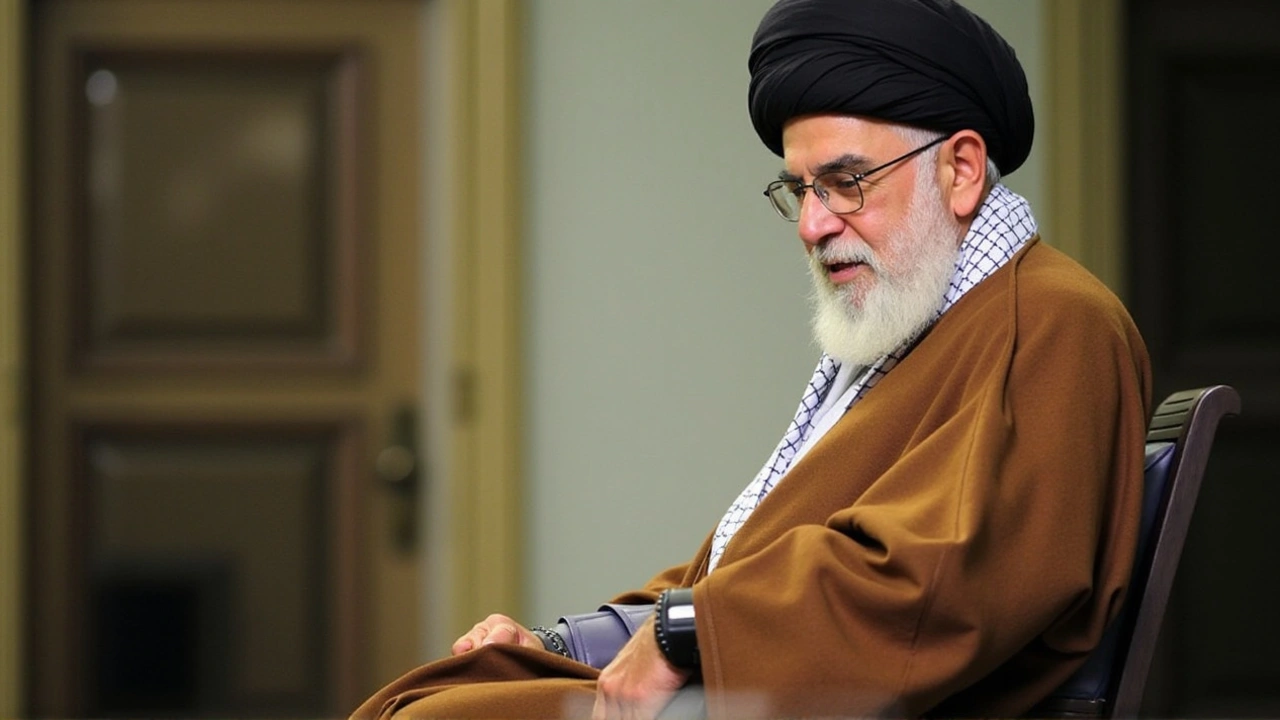
The Uncertainty Surrounding Ayatollah Ali Khamenei's Health
In recent weeks, escalating rumors about the health of Iran's Supreme Leader, Ayatollah Ali Khamenei, have captured global attention. At 85 years old, Khamenei's health status is shrouded in secrecy, making it difficult to discern fact from speculation. While unverified reports claim that he is in a coma, the Iranian government has remained tight-lipped, withholding any confirmation or denial of such assertions. This silence has done little to quell the swirling rumors, leading many to question the veracity of information circulating in the media. In the absence of an official statement, international observers and policymakers scrutinize every shred of available information regarding his condition.
The Potential Succession of Mojtaba Khamenei
The speculation surrounding Khamenei’s health has led to intense discussions about the possible succession of leadership. His son, Mojtaba Khamenei, a relatively inconspicuous figure until now, has suddenly found himself thrust into the spotlight. Known for his mid-level clerical position and behind-the-scenes influence, Mojtaba is being touted as his father's potential successor. His emergence as a key player in this context is intriguing, given his lack of formal governmental experience. Observers have noted that Mojtaba’s grooming for leadership might have been an ongoing project behind closed doors, away from public scrutiny. Analysts believe there is a calculated strategy at play, potentially orchestrated to facilitate a smooth transition of power should the need arise.
The Secrecy of the Assembly of Experts Meeting
Adding another layer to the intrigue is the clandestine meeting of the Assembly of Experts, reportedly held on September 26. This assembly, tasked with electing the Supreme Leader, purportedly gathered under strict secrecy, allegedly at Khamenei's behest. Such secrecy has fueled rumors and fostered a climate of uncertainty, as the Iranian public remains unaware of decisions being camouflaged from them. Political analysts assert that this covert assembly might have deliberated on succession plans, given the precarious regional and international standing of Iran. The ramifications of these hidden discussions could be profound, influencing not only domestic policies but also Iran's posture on the international stage.
Regional Tensions and Geopolitical Implications
This sensitive situation unfolds amid heightened tensions in the Middle East, with implications that extend far beyond Iran's borders. Iran's adversarial stance and plans for potential attacks, particularly against Israel, are causing widespread anxiety. The geopolitical stakes are high, with the potential for any leadership transition to spark significant shifts in regional alliances and conflicts. The delicate balance of power in the Middle East depends heavily on Iran's decisions, and any internal instability could precipitate wider unrest. Consequently, international intelligence agencies and governments are monitoring developments in Iran closely, aware that any missteps could lead to broader confrontations.
The Role of Credible Information
Amid these uncertainties, experts emphasize the importance of relying on credible sources for information. Jason Brodsky, a key figure at United Against Nuclear Iran (UANI), cautions against the hazards of disseminating unverified news. He stresses the necessity for accuracy, especially when addressing topics as sensitive as leadership transitions in volatile regions. Misinformation can inflame tensions and cause undue alarm during an already fraught period. The advice from experts is clear: patience and care are essential when navigating news reports, particularly those that could affect global stability.
The Global Watch on Iran's Future
As Iran stands on the brink of potential leadership change, the world watches intently. Whether Khamenei's health rumors prove true or are mere speculation, the focus remains on the possible repercussions of such a shift. Any transition at this crucial juncture could not only reshape Iran’s political landscape but also its relationships on the world stage. Nations with vested interests in the region are particularly alert, assessing how these developments could influence future diplomacy, economic partnerships, and security strategies. The stakes in this unfolding narrative are incredibly high, compelling a global audience to remain vigilant as the story continues to evolve.
Conclusion: A Tense Awaiting
With the Iranian government maintaining its silence, the ambiguity surrounding Ayatollah Khamenei's health persists. The air of uncertainty envelops not only Iran’s internal dynamics but also its role across the geopolitical spectrum. As leaders across the globe weigh in on potential outcomes, one thing is clear: how Iran navigates this pivotal moment will indelibly shape its future. Observing nations, anxious about the ripple effects of any transition, must tread carefully, ensuring their readiness for whatever unfolds in Tehran.
Write a comment